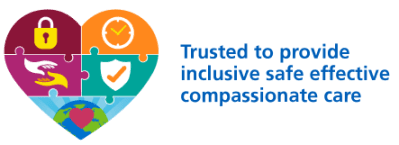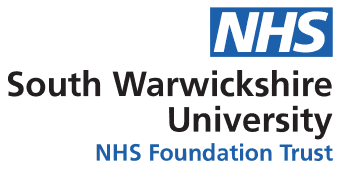We are aware that the needs of our patients and staff are continually changing and that we serve an increasingly diverse population in respect of language, culture, religion and ethnicity.
We believe that the people who use our services, their carers and our staff should be treated with respect and dignity. We're committed to treating everyone fairly regardless of their race, religion/belief, gender, sexual orientation, social background, disability or age and will not tolerate discrimination of any form.
Our equality work is led by the Equality and Diversity Steering Group, which reports to the Trust Board. The Trust Board believes that the work carried out by this group and the Trust's Equality and Diversity agenda will enable us to continue to improve and develop the services we deliver.
Olaniyi Ayeni, Equality and Diversity Lead
Email: olaniyi.
The Trust consults with its staff, service users and local community groups on its Equality Impact Assessments. Our Equality Impact Assessments cover all areas of equality legislation including race, gender, disability, age, sexual orientation and religion and belief.
If you wish to view the most recent EIAs or would like further information, please contact olaniyi.
Cultural Competence
Enhances awareness and understanding of diverse cultures, promoting inclusive behaviours and reducing bias. This training equips individuals with the skills to effectively interact with people from different backgrounds, fostering a respectful and equitable environment in both professional and personal settings.
Equality Impact Assessment
Provides essential skills for evaluating policies and practices to ensure they promote fairness and do not disadvantage any group. This training empowers participants to identify and mitigate potential inequalities, fostering an inclusive and equitable environment in all organisational activities and decisions.
Psychological Safety in the Workplace
Cultivates an environment where individuals feel safe to express ideas, take risks, and contribute without fear of judgment or reprisal. This training enhances team collaboration, creativity, and well-being by fostering open communication and mutual respect, ultimately leading to a more resilient and productive workforce
Diverse Inclusion Network
The Diverse Inclusion Network (D.I.N) has been formed with membership open to all staff of BAME heritage as well as interested parties. The purpose of the group is to provide a network to support to BAME staff.
We exist to provide a safe space to discuss any issues and provide support where needed, but are also here to help celebrate achievements.
We’re working closely with outside organisations to deliver cultural awareness training, share relevant information and highlight BAME issues. Guest speakers are regularly featured in our meetings on various topics and we are always on the lookout for others to share their experiences and knowledge.
Aims:
- To enable BAME staff to feel that they are part of and have a vital role to play in the Trust
- To influence and support organisations' policy and practice
- To provide a safe, confidential and supportive environment where we can be honest and confident with each other
- Act as point of contact and work with the Equality and Diversity Steering Group, to also provide a forum for linking into other staff network groups
- To assist with identifying development needs and raise awareness of barriers/challenges to increase our/others understanding.
- Receive feedback via Expectation Surveys
- To celebrate achievements
- Reverse Mentoring established with CEO and BAME officer
- Raise Profile of BAME staff within and beyond
The Diverse Inclusion Network (D.I.N) also work with:
- GEH Trust
- Coventry and Warwickshire Partnership Trust
- Warwickshire County Council
- Rugby Council
- Multi-faith Forums
- Improving Inclusion and Support Group within SWFT NHS which BAME officers attend
LGBT+ Network
This is a support network, made up of staff from the Trust, including volunteers, students, contractors and those from contracted services for example SWFT Clinical Services, representing LGBT+ groups. Signposting staff as needed to other Trust support such as Occupational Health, Employee Assistance Provision and Staff Support services.
The Network advises the Trust with relation to the implementation of LGBT+ equality legislation and public duties and offers the Trust an early indicator on inequality, injustice or cultural exclusions and work towards solutions and ideas to address these potential inequalities.
The Network work with and advise the Trust to help improve access for LGBT+ communities, considering recruitment and retention of staff and service delivery in line with the accessible standards duties, promoting a better understanding of LGBT+ issues across the whole Trust through communications, training and education.
The Network is an integral part of the Governance structure of the Trust that discusses and implements best practice around LGBT+ equality, diversity and inclusion. Representation from the group links in with other Staff Networks and the Equality and Diversity Steering Group.
The Network promotes a culture of equality, diversity and inclusion, supporting all staff and managers whether identifying with LGBT+ issues or as allies.
Veterans Covenant Healthcare Alliance
We are very proud to say that we have achieved accreditation as a “Veteran Aware” Trust. This means that we have been recognised as being committed to helping to drive improvements in NHS care for people who serve or have served in the UK armed forces and for their families.
As well as improving the care of veterans, as a "Veteran Aware" Trust we aim to remove barriers to the employment of veterans and actively identify ways in which the organisation can support career opportunities for them.
A veteran is defined as any person who has been a member of the British Armed Forces for any length of time. All veterans are entitled to priority access to NHS care (including hospital, primary or community care) for service-related conditions associated with their time in the armed forces. They may also have very different skills and experiences, which could benefit the NHS from an employment perspective. The NHS needs to do more to actively encourage veterans to pursue these opportunities and as a “Veteran Aware” Trust we will play our part in doing this.
Workforce Disability Network
The Trust's Workforce Disability Network has been formed with membership open to all staff living with disabilities and long-term medical conditions, as well as interested parties and carers. The purpose of the group is to provide a network of mutual support and a collective voice for staff with disabilities within the Trust.
The network provides a confidential and supportive environment to discuss good and bad experiences and gather information about the experiences of disabled staff in order to establish good practices.
It offers a point of contact and work with the Equality and Diversity Steering Group to develop effective solutions in planning and policy development for staff with disabilities.
Anti-Discrimination Helpdesk
The Anti-Discrimination Helpdesk is a safe space to raise your concerns and is managed by the Trust Equality, Diversity and Inclusion Lead and Freedom to Speak Up Guardian. All concerns are treated with confidentiality.
Neurodiversity Network
Neurodivergent conditions include autism, ADHD, dyslexia, and Tourette's, though many other neurological differences fall under this umbrella.
This concept highlights that, due to the way society is structured, some individuals experience unfair barriers that limit their access to education, employment, and social participation.
The aim of our network is to create better working environments for neurodivergent staff, enabling us to care for our patients with a deeper understanding. A workforce that reflects the community it serves leads to improved care and better outcomes.
What can we do?
- Provide a safe and confidential space for staff to discuss and share experiences related to neurodiversity.
- Celebrate the strengths and unique contributions of neurodivergent individuals.
- Educate staff about neurodiversity to reduce stigma and increase understanding.
- Support staff in implementing reasonable adjustments in the workplace.
- Offer peer support and mentoring opportunities.
- Help neurodivergent staff structure their jobs to bring out their best potential.
- Remove barriers to ensure neurodivergent staff have equal access to recruitment and development opportunities.

